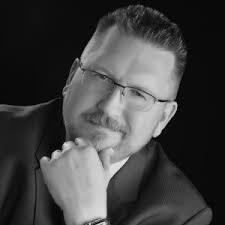American View: Is Generation Z Distracted or Transcending?

My buddy Durga from The Book Publicist in Wales is the sort of friend that my parents would’ve called a “bad influence.” No, she’s not trying to lure me into a cult (as far as I can tell). Rather, she’s constantly enticing me to add even more books to my overflowing to-be-read stack. “Good morning,” she always starts. “Would you be interested in reading a copy of a compelling new business book that hasn’t reached stores yet”? Would I? Would I?!? HELL YES, I WOULD! Let bankers have their cocaine and politicians their “wine and cheese” … I’ll take newly published social science research as my vice of choice every time.
I’ve been such an easy mark that Durga’s cubicle mate Emma had a go at me back in June with an offer to read a new book about Generation Z’s potentially harmful relationship with technology written by some upper crust bloke that I’d never heard of. Was I interested? C’MON, ALREADY! YOU KNOW I’M INTERESTED! AAAARRGH!
The book Emma “suggested” – Born Digital: The Story of a Distracted Generation by Robert Wigley – made it to me in mid-July. I was working on a front-to-back review of one of Durga’s other offerings at the time and couldn’t read the new one up until after my column on Stop, Ask, Explore posted on 26th July. I figured I could use August to give this new work the attention it deserved.
I figured wrong. Wigley’s opening assertion in the foreword immediately bucked me off like a dyspeptic bronco. Literally, his book begins with this: “Society is distracted. Our attention has been hijacked by the tsunami of smart devices and tech companies that provide us with free services in return for delivering us, so they say, what we want.”
To say that I was okay with the first three words and then recoiled before the end of the second sentence of a book is not, in my experience, great praise. To be clear, I’m not saying that Mr. Wigley isn’t a good writer; I thought his prose was fine. He quoted scads of experts and documented his sources … something I’m always happy to praise. Wigley admitted on the first page that his intent behind the book was to share his “insights” on a topic that bothered him, as viewed through his own Gen Z kids.
That being said, I slammed the metaphorical brakes when Mr. Wigley framed the problem of a “distracted society” on endpoint devices and the services they access rather than, say, the soul crushing pressure inflicted on young people trying to survive on the bottom of the unscalable pyramid that is late-stage capitalism … of which the aforementioned “tech companies” are mere manifestations of larger exploitative and predatory anti-consumer business trends. Put more bluntly, Facebook is one serious problem among many; Facebook is not the problem bedevilling twenties society.

It was a weird and rough start. Then again, Born Digital was first published in 2021 according to the book inside flap. Given how long it can take to get a book ready for print, I have no trouble accepting that Mr. Wigley finished his book before the COVID-19 pandemic. You know, that event that cranked Generation Z’s already high levels of anxiety and depression up past 11.
Having said that, there was already more than enough reasons for Gen Z kids to be “distracted” to the point of paralysis: they’re coping with the massive drop in the value of a university education, the increased cost and reduced availability of housing, and the planet catching on fire. Just to up the challenge factor, five months before Wigley’s book came out, Russia invaded Ukraine and resurrected good old Cold War nuclear animalization terrors. Of course Gen Z kids and young adults are glued to their phones; we all are. It’s called “doomscrolling” and I’m as guilty of it as any given Zoomer is.
Wigley’s peculiar choice to not mention the myriad global catastrophes that draw anxious eyes to news feeds seemed like a preventable goof at best and a deliberate distortion of the larger context at worst. Still, I wanted to give the bloke the benefit of the doubt … even though I was having an extremely difficult time taking the author’s arguments neutrally.
I went back to the table of contents and looked for a chapter or section on societal context … and found nothing. Instead, I found that nearly half the book (at or about 116 of the work’s 243 pages, not counting appendices and endnotes) are part of a moralistic-sounding section called (and I swear I’m not making this up):
|
PART 3. THE NEW NORMAL
Subsection 1. Social Life Chapter. 8. The Hookup Culture Chapter. 9. Sexuality? Whatever … Chapter. 10. Forget Religion, Marriage and Two Opposite-Sex Parents
|
Wigley’s choice of framing here a seemed controversial to say the least. Where the book’s early chapters had focused on neuroscience, the next several chapters seemed to be less analysis and more scathing condemnations of “those darned kids today with their non-traditional values.” I was worried that I’d be reading a screed rather than an analysis … and I think I was right.

Most public discourse in the USA now consists of screens, protests, counter-protests, riots, and public violence. Another great reason for zoomers to be constantly on edge and obsessed with their news feeds.
On page 171 (chapter 10), Wigley wrote: “At the same time as engagement with religion itself had declined, for different reasons women’s ability to work has increased, the gender pay gap has declined, civil partnerships have become commonplace, single-parent families have also become common, and the social stigma of children being born out of marriage has dramatically declined.”
At first, I couldn’t tell if he was trying to insinuate that these changes were “good” or “bad.” His concluding sentence removed all doubt: “Consequently, marriage and the traditional nuclear family unit has become more of a choice than a necessity.” [emphasis added]
A necessity? Really? To be clear, I appreciate when an author shares their biases in their text. helps me better understand their arguments when I know which philosophical assumptions and interpretive frameworks the author’s ideas come from. In this half-paragraph, Wigley’s phrasing, framing, and conclusions reveal a common American-style neoconservative sociocultural perspective by invoking the “nuclear family = necessary (and, therefore, good)” position.
I don’t find that writing from this philosophy invalidates Wigley’s insights on the distracting and distancing effects of always-on endpoint devices. I do, however, feel that this philosophy so thoroughly colours Wigley’s worldview that his interpretations are skewed … and, therefore, must be held at arm’s length (so to speak).
If you’re not already familiar (as I must assume Wigley isn’t) the “nuclear family” idea isn’t even a century old yet. Historically and socially, it’s an artificially constructed aberration in human social relations that dates to only 1945. I suggest picking up a copy of historian Stephanie Coontz’s outstanding 1992 book The Way We Never Were: American Families and the Nostalgia Trap. If you’re in a hurry, feel free to skip directly to chapter 2 on the changes introduced in the 1950s.
We covered this subject at length in my undergrad philosophy courses. Broadly, American industrial giants were desperate to get “back to business” following World War 2. Instead of building war matériel, they wanted to shift production to consumer goods as swiftly as possible. Trouble was, consumers in multi-generational homes only needed so many expensive cars, houses, and appliances before supply outpaced demand. The solution was to change the buying public’s conception of the traditional family into the completely made-up and ahistorical “nuclear family” … one that required not just its own isolated suburban existence, but also must complete with all its neighbours through conspicuous consumption. TL;DR: The “nuclear family” a myth written by marketing creeps to sell more cars, houses, and high-profit appliances!
Speaking solely for myself, I understand Wigley’s concern about children seeming “glued to their phones” as if they prefer relationships with anonymous strangers on the Internet over so-called “real” relationships like the kind Wigley and I grew up with. Where we part ways is in calculating the impact of this new way of life. I see this shift from limited intimate interpersonal relationships with one’s limited pool of neighbours, school chums, and churchgoers towards long-distance relationships with “found family” based on intellectual, spiritual, philosophical, and social compatibility to be a good thing for society over the long term … not, as Wigley seems to calculate, as a harbinger of the decline of western civilisation.

Making connections is difficult enough in the best of times. Trying to find acceptance, respect, and community in a geographically, socioeconomically, and philosophically isolated suburb is challenging, especially if you don’t fully conform to the “expected” mould. Here in America™ if you’re not straight, not protestant Christian, not socially conservative, not middle class or wealthy, and not comfortable with systemic bigotry, you can expect a ton of “corrective” pressure from parents, friends, and authority figures to either fall in line … or to sit down and shut the hell up. A modern suburban childhood in America is a philosophical cul-de-sac that prioritises conformism über alles. Is it any wonder that so bloody many people must find community where they can, even when it’s on the remote end of a Reddit thread or Twitch stream?
My point is that Wigley’s socio-political position in chapter 10 finally kicked me out of the book in its entirety. The vibe I took away from his work is that he views the phenomena of children prioritising their internet friends over their parents, teachers, and clergy as a tragic degradation of cherished, inviolable “traditions” whereas I see the exact same phenomena as a joyful sign of liberation and a reason to hope that our children and grandchildren will experience a better future than Wigley and I had. Our positions are philosophically opposite one another. That doesn’t make either or both of us wrong.
I re-checked Emma’s letter. She introduced Wigley as “… Chairman of UK Finance and former EMEA Chairman of Merrill Lynch. He sits on the UK’s Economic Crime Strategic Board (co-chaired by the Home Secretary & Chancellor), previously sat on the Board of the Bank of England and chaired the Green Investment Bank Commission.”
Maybe that accounts for our differing perspectives on the problem. Wigley sounds like a prosperous executive wheras I’m a former squaddie who’ll never make it to the “executive ranks” or the upper class. Maybe Wigley’s personal life experience “proved” that the traditional “nuclear family” model “works.” It sure sounds like it did for him! Well done, fella. That would certainly explain why he wants the uniquely Cold War culture preserved. I can dig his motivation even if I thoroughly disagree with him. Dude’s writing what he knows and believes; I respect that. He sees zoomers’ activities and interprets their effects as destructive isolation; I see the same thing and interpret them as constructive exploration, connection, and emancipation.
So … should you buy and read Mr. Wigley’s book? Sure. Even if you completely disagree with his positions (like I do), Wigley’s analysis is very well written. Objectively, I think he’s written a sound book on a challenging subject. My objection to his analysis and deductions is that his framing – I believe – so strongly biased by his ideological understanding of how families and society should work that his proposed remedies are, at best, useless to me. I won’t implement Wigley’s insights because I perceive the direction that he advocates is regressive and destructive, not restorative and healthy.
That said, I believe his positions are worth reading and discussing. Even though I disagree with him, getting to understand why he and people sharing his worldview perceive the problem helps me to re-frame my arguments about what might be done to mitigate it. That, in and of itself, is worth a few quid and a dozen hours curled up in a comfy chair.

Keil Hubert
You may also like
Most Viewed
Winston House, 3rd Floor, Units 306-309, 2-4 Dollis Park, London, N3 1HF
23-29 Hendon Lane, London, N3 1RT
020 8349 4363
© 2025, Lyonsdown Limited. Business Reporter® is a registered trademark of Lyonsdown Ltd. VAT registration number: 830519543





